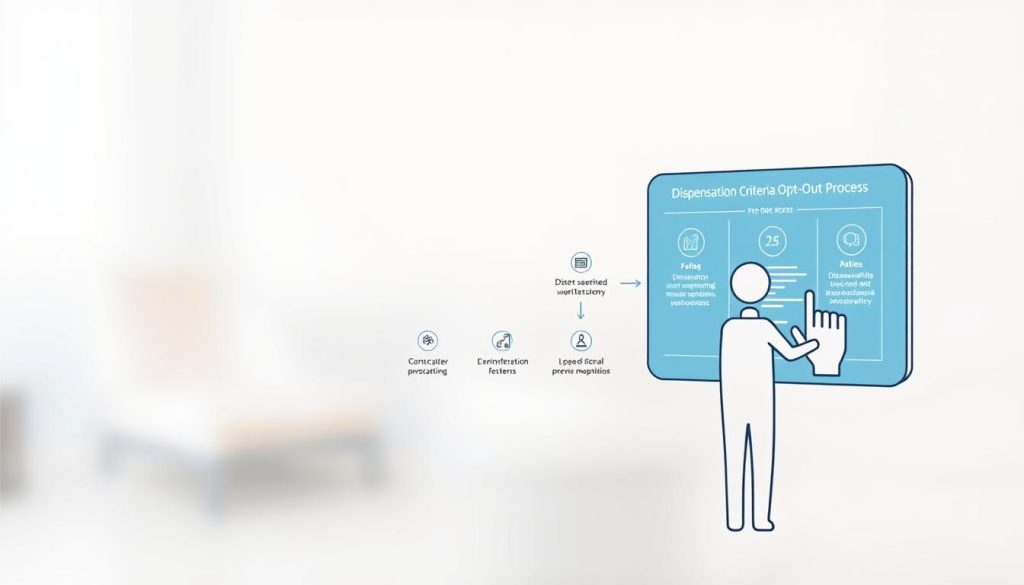Imagine having the freedom of an independent consultant with the full social safety net of a permanent employee. This powerful combination is a reality for over 100,000 professionals in France who have chosen a unique framework for their careers.
This model bridges a critical gap for modern workers. It offers the autonomy of freelancing while providing essential benefits, including mandatory health coverage. You gain the stability needed to focus on your work without sacrificing your professional independence.
We will guide you through how this three-party arrangement functions. You will understand the specific obligations and rights designed to protect you. Our goal is to give you the clarity to navigate your options with confidence.
This article is your complete resource. We explain the legal requirements that ensure your access to quality healthcare, regardless of your independent status. By the end, you will be equipped to make informed decisions about your future security.
Table of Contents
Key Takeaways
- This professional framework combines the freedom of independent work with the security of employee benefits.
- Health insurance coverage is a mandatory and integral part of the arrangement.
- The structure involves a unique three-party relationship with specific considerations for social protection.
- Legal requirements are in place to guarantee professionals access to comprehensive healthcare.
- Understanding your rights and obligations is key to maximizing the benefits of this model.
- This guide provides the knowledge needed to confidently choose and manage your health plan.
Overview: Securing Your Career as an Independent Professional
Navigating the world of independent consulting involves balancing autonomy with essential safeguards for your future. We understand that true professional freedom comes from having reliable protection while pursuing your career goals.
Introducing Portage Salarial
This innovative framework creates a three-party relationship that transforms how you work independently. You establish a formal contrat travail with a specialized société portage salarial, becoming a salarié porté while serving client companies.
The arrangement provides comprehensive protection sociale typically available to traditional employees. This includes retirement benefits, unemployment coverage, and crucially, health insurance.
Value of a Complementary Health Plan
Since the 2013 employment security law, every employee has the fundamental droit to collective health coverage. This mandatory complémentaire santé covers expenses that basic Social Security doesn’t fully reimburse.
You gain significant sécurité compared to pure freelance status where you’d bear full insurance costs. The portage company handles administrative obligations, allowing you to focus on your consulting work with confidence.
This protection framework transforms independent work from a precarious choice into a secure professional path. You maintain your autonomy while enjoying the safety nets that support long-term career success.
Understanding « portage salarial et mutuelle santé »

Grasping the dual-layer system of French healthcare ensures you can navigate medical expenses with confidence. This framework provides comprehensive protection that mirrors traditional employment benefits.
Definition and Key Components
France operates a two-tier healthcare system. The sécurité sociale provides base coverage for essential medical needs. Your complementary mutuelle fills the remaining gaps in protection.
Social Security establishes conventional tariffs for each type of medical procedure. These standardized rates cover consultations, hospital stays, and specialized soins. The system then reimburses a percentage of these predetermined amounts.
The gap between Social Security payments and actual healthcare frais creates what’s called the « ticket modérateur. » This is where your complementary health plan becomes essential. It also covers fee overages when providers charge above conventional rates.
Consider a dental procedure costing €1,000. Social Security might recognize only €200 at 70% reimbursement, paying €140. Without proper assurance, you’d face €860 in out-of-pocket expenses. With adequate complementary coverage, most costs are covered.
This system ensures comprehensive protection against unexpected medical maladie expenses. The complementary plan is not optional but fundamental to financial security. It specifically addresses high-cost areas like dental work and optical care that would otherwise create hardship.
Understanding this remboursement structure helps you maximize your healthcare benefits. For professionals exploring this framework, detailed information about healthcare coverage options is available to guide your decisions.
Legal Framework and Mandatory Requirements
Since 2016, comprehensive health insurance has become a fundamental right for every employee in France. This legal protection extends to all professional arrangements, ensuring consistent coverage standards across different work models.
Obligatory Mutuelle for Portage Salarial
French law mandates that since January 1, 2016, every entreprise must provide collective health coverage to its salariés. This mutuelle obligatoire requirement applies equally to société portage salarial organizations.
Your portage company bears the legal responsibility to proposer mutuelle collective coverage. They cannot avoid this obligation regardless of your contract duration or type. This creates a safety net that mirrors traditional employment benefits.
Minimum Benefits and Regulatory Compliance
The mandatory mutuelle collective must include a legally defined « panier de soins minimum. » This establishes baseline garanties across essential healthcare categories for all salariés.
Specific requirements include full coverage of hospital daily allowances without limitations. Dental care must reimburse at least 125% of the sécurité sociale base rate for prosthetics.
Optical expense coverage varies by lens complexity, with established minimums. These garanties ensure comprehensive protection for essential soins beyond basic sécurité sociale coverage.
This mutuelle obligatoire framework since janvier 2016 creates a protective floor. Many companies enhance their offerings with more advantageous terms for valuable professionals.
Dispensation Criteria and How to Opt-Out

The mandatory nature of collective health insurance doesn’t eliminate your ability to seek exemption under legally defined situations. We want you to understand that specific conditions create legitimate pathways for dispense from the standard coverage.
Eligibility Conditions for Mutuelle Dispensation
Several cas qualify you for exemption. If you benefit from your spouse’s coverage, duplicate payments become unnecessary. Professionals with fixed-term contrat arrangements under twelve mois automatically qualify.
Those with permanent contracts may maintain existing individual plans until anniversary dates. Beneficiaries of solidarity coverage like CSS (formerly CMU-C) also qualify throughout their assistance period.
| Eligibility Scenario | Contract Type | Duration Requirement | Documentation Needed |
|---|---|---|---|
| Spouse’s coverage | Any | N/A | Declaration only |
| Existing individual plan | CDI | Until anniversary | Insurer details |
| Short-term engagement | CDD | < 12 months | Automatic qualification |
| Solidarity coverage | Any | Rights duration | Status declaration |
Step-by-Step Opt-Out Process
To exercise your dispense rights, act within fifteen days of your contrat start. This strict deadline ensures proper administrative processing.
Open the invitation email from the provider and select the exemption option. Create an account indicating your reason and alternative insurer. Complete the formal « declaration of exemption » attesting your eligibility.
Since September 2022, supporting documentation is no longer required—a properly completed declaration suffices according to current regulations.
This streamlined process respects your circumstances while maintaining compliance. Each salarié porté can navigate these conditions with confidence.
Steps to Enroll in a Mutuelle for Portage Salarial
Enrolling in your health coverage begins with a simple digital invitation that arrives shortly after your contract starts. We want you to feel confident navigating this essential process that secures your medical protection.
Receiving the Invitation and Confirming Participation
Your société portage coordinates with the insurance provider to send an official enrollment invitation. This email contains all necessary details about the collective plan’s benefits and costs.
You have a critical 15-day window following your contrat start date to respond. Carefully review the coverage terms and contribution amounts before making your decision.
Confirm your participation by selecting the acceptance option in the digital interface. This explicit confirmation ensures your adhésion to the comprehensive protection plan.
Completing Your Registration Process
The next step involves providing accurate personal information requested by the provider. This typically includes identity details and contact information for proper account setup.
Your coverage becomes effective from either the collective agreement date or your hiring date. The entreprise handles administrative coordination, allowing you to focus on your professional activities.
| Enrollment Step | Timeframe | Action Required | Outcome |
|---|---|---|---|
| Invitation Receipt | Within 5 business days | Open and review email | Access to plan details |
| Confirmation Period | 15 days from contract start | Select participation option | Active enrollment status |
| Information Submission | Following confirmation | Provide personal details | Complete account setup |
| Coverage Activation | Immediate upon completion | None required | Protection begins |
If you take no action within the designated period, you’ll be automatically enrolled. This safety mechanism prevents accidental loss of essential health protection.
The salarié benefits from this streamlined approach that the société portage designed. Your medical security remains our priority throughout this straightforward process.
Cost Breakdown and Sponsorship Responsibilities
The economic reality of healthcare contributions differs significantly from traditional employment arrangements. We believe complete financial transparency helps you make informed decisions about your professional framework.
Understanding Salary and Employer Contributions
In this unique professional model, the financial structure operates differently. While your société legally pays a minimum 50% employeur part, the economic reality is that 100% of healthcare costs ultimately derive from your billable revenue.
The contribution structure divides into two distinct parts. Your salaire bears the employee part, capped at 50% maximum. The employeur part, representing at least 50%, reduces the funds available for your salaire calculation.
Since January 2021, the maximum monthly cotisation taux for individual coverage stands at €41.53. This establishes a clear ceiling for base mandatory protection. Your société deducts approximately €20.67 as your charge, while contributing at least €20.67 as the employeur part.
Average expenses in France run approximately €40 monthly for individuals. The actual charge you face depends on multiple factors. These include the specific contract terms and your société‘s negotiation capacity.
We emphasize evaluating costs beyond the monthly premium. Assessing the quality-price ratio ensures adequate protection when care is needed. This approach protects your financial security as a salarié in this framework.
Portability and Continuation Post-Contract
Portability ensures your healthcare coverage continues seamlessly after your employment relationship ends. This valuable provision protects you during career transitions between assignments. We want you to understand how this mechanism sustains your protection when you need it most.
How Portability Benefits Sustain Your Coverage
When your contrat travail reaches its fin contrat, portability allows you to maintain your collective health plan at no cost. This droit applies specifically when your contract termination qualifies you for chômage benefits. The protection extends for up to twelve mois following your departure.
To activate this benefit, you must have been actively enrolled in the collective plan before your contract ended. Your rupture cannot result from gross misconduct. This ensures continuous couverture during job searches or between consulting missions.
The portability mechanism operates completely free of charge. You maintain the same network access and reimbursement levels enjoyed during active employment. This demonstrates the superior protection compared to pure freelance status where benefits immediately cease.
Remember to explicitly request portability activation when leaving your employment arrangement. While this is your legal droit, it may not be automatically implemented. This provision provides crucial security during transitional periods in your professional journey.
Additional Considerations and Best Practices
Making informed decisions about your healthcare coverage involves understanding the balance between cost and protection quality. We guide you toward selecting options that provide genuine security rather than just apparent savings.
Comparing Mutuelle Options and Coverage Levels
The lowest-priced mutuelle portage option rarely offers the best value. Instead, focus on the quality-price ratio to ensure adequate protection when medical needs arise.
Carefully compare remboursement levels across different providers and coverage tiers. Significant variations exist in actual protection value despite similar premium costs.
Pay particular attention to high-cost categories like optique care and dentaire procedures. These areas often generate substantial out-of-pocket frais with inadequate coverage.
Your portage company typically offers multiple contract options. These accommodate different family situations through flexible garanties.
Review detailed guarantee tables specifying exact coverage levels. This article emphasizes understanding reimbursement formulas for informed decision-making.
The negotiation capacity of your portage firm directly affects coverage quality. This makes it a crucial factor when evaluating different mutuelle portage arrangements.
Conclusion
The journey toward secure independent consulting culminates in understanding how robust healthcare protections support your long-term success. This article has equipped you with comprehensive knowledge about the protection sociale framework available to modern professionals.
As a salarié porté, you benefit from mandatory collective coverage since 2016, with employer contributions reducing your costs. The dispensation options and portability provisions provide flexibility while maintaining essential sécurité.
Your role in selecting quality coverage and understanding enrollment timelines ensures optimal protection. This portage salarial arrangement transforms independent work into a stable career path with reliable mutuelle benefits.
We encourage every professionnel to leverage this knowledge when choosing their portage salarial partner. The right mutuelle selection empowers you to focus on your expertise with confidence in your healthcare security.
FAQ
Is a complementary health plan mandatory under a portage salarial contract?
Yes, it is a legal requirement. Since January 2016, all companies, including portage salarial firms, must provide a collective health insurance plan to their employees. As a salarié porté, you are considered an employee of the portage company and are therefore covered by this obligation.
What happens to my health coverage if my portage salarial contract ends?
Your coverage under the company’s group plan typically ends with your contract. However, you benefit from « portability, » which allows you to continue your individual coverage under the same terms for a specified period, often 6 to 12 months, by paying the premiums directly to the insurer.
Can I opt out of the mutuelle collective offered by the portage company?
Yes, dispensation is possible under specific conditions. You can opt out if you already have equivalent coverage through a spouse’s plan or if you are covered by a specific public health scheme like the CSS (Couverture Maladie Universelle Complémentaire). You must provide proof of this alternative coverage to the portage company.
Who pays for the mutuelle in a portage salarial arrangement?
The cost is shared. The portage company, as your legal employer, is required to contribute at least 50% of the premium. The remaining portion is deducted from your salary before it is paid out to you, ensuring you benefit from group rates and employer sponsorship.
How do I enroll in the health plan when I join a portage salarial firm?
Upon signing your work contract, the portage company will formally invite you to join their collective health insurance plan. You will receive information about the coverage and costs. To enroll, you typically need to complete and return a registration form provided by the company or the insurer.
What types of medical expenses are typically covered by these plans?
A standard complementary health plan covers a portion of your healthcare costs not fully reimbursed by the French Sécurité sociale. This commonly includes doctor visits, hospitalization, dental care, optical needs (glasses, lenses), and pharmaceuticals. The exact level of remboursement depends on the specific guarantees of the chosen plan.
What should I compare when evaluating different mutuelle options?
Focus on the coverage levels (taux de remboursement) for different types of care (like dental, optical, and hospital stays), the monthly cost after employer contribution, the network of healthcare providers, and any waiting periods for certain treatments. Ensure the plan’s guarantees align with your personal and family health needs.





